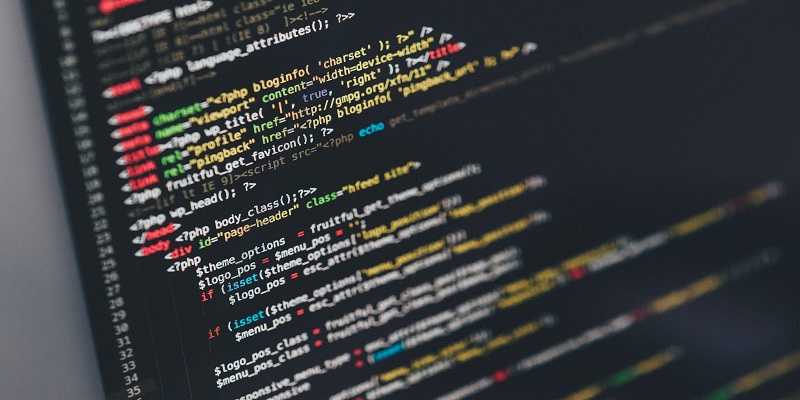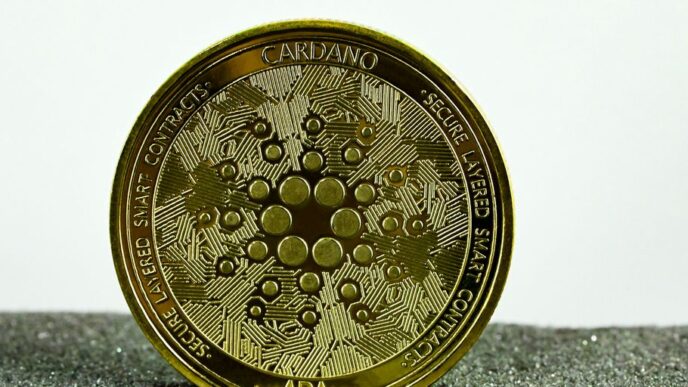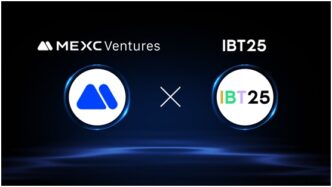Introduction
Data is the new gold of the digital age. From personal information to financial transactions, our lives revolve around valuable data that holds immense power. But with great power comes great responsibility – and in this case, it’s about keeping your data safe on blockchain. Blockchain technology has revolutionized the way we store and manage data. Its decentralized nature ensures transparency, immutability, and security like never before.
However, even though blockchain offers unprecedented levels of protection against hacks and frauds, there are still certain measures you need to take to ensure your data stays locked down. In this blog post, we’ll dive into the world of blockchain security and explore how you can keep your precious information out of harm’s way. Whether you’re a cryptocurrency enthusiast or simply curious about safeguarding your digital footprint, join us as we uncover the secrets of staying safe on blockchain.
Introduction to the Blockchain technology
If you have been following the news in the tech world, you have likely heard of blockchain technology. Blockchain is a distributed database that allows for secure, transparent and tamper-proof record keeping. This makes it an attractive option for storing data, particularly sensitive data.
While blockchain technology is still in its early stages, it shows great promise for securely storing data. In this article, we will discuss how blockchain works and why it may be a good option for keeping your data safe.
How Blockchain Works
A blockchain is a digital ledger of all transactions that have ever been executed. This ledger is distributed across a network of computers, known as nodes. Every time a new transaction occurs, it is broadcast to the network and verified by the nodes. Once verified, the transaction is added to the blockchain and locked in forever.
The key benefit of this system is that it is very secure. Transactions cannot be modified or deleted once they are added to the blockchain. Furthermore, due to the decentralized nature of the network, there is no central point of failure that could be exploited by hackers.
Why Blockchain May Be Good For Data Storage
There are many possible applications for blockchain technology, but one of the most promising is data storage. Due to its security and immutability, blockchain could be used to store sensitive data such as medical records or financial information. Additionally, because there is no central authority controlling the database, individuals would have full control over their own data
Benefits and Risks of Using Blockchain
When it comes to storing data on the blockchain, there are both benefits and risks to consider. On the one hand, blockchain is incredibly secure and trustworthy, making it ideal for storing sensitive data. On the other hand, blockchain is still a relatively new technology, which means that there are some potential risks associated with using it.
Let’s take a closer look at both the benefits and risks of using blockchain for data storage:
Benefits of Blockchain Data Storage
- Increased Security: One of the biggest benefits of using blockchain for data storage is that it is incredibly secure. This is because each block in the chain is encrypted and linked to the previous block, making it nearly impossible to tamper with or delete any data without changing the entire chain. Additionally, all transactions on the blockchain are verified by multiple users (known as “nodes”), so it would be very difficult for anyone to falsify or alter any data without being detected.
- Greater Transparency: Another benefit of using blockchain is that it allows for greater transparency. Since all transactions are publicly recorded on the ledger, anyone can view them at any time. This could be useful for businesses or organizations who need to track their data closely in order to ensure compliance with regulations or internal policies. Additionally, this increased transparency could help build trust between consumers and businesses/organizations since they would be able to see exactly what information is being shared and how it’s being used.
- Improved Efficiency: Lastly, using the blockchain can also help improve efficiency by streamlining data storage and processing. For example, since all transactions on the blockchain are stored together in a single ledger, it eliminates the need for multiple databases and manual updates of information by different parties.
Risks of Blockchain Data Storage
- Lack of Regulations: As with any new technology, there is currently no regulatory framework in place to ensure the safety and security of data stored on the blockchain. This means that organizations or individuals using blockchain must be extra careful to make sure that they are taking all necessary measures to keep their data safe from potential hackers or malicious actors.
- Potential Weaknesses in Privacy: Additionally, while blockchain does offer improved security measures over traditional methods, there are still potential weaknesses when it comes to privacy. Because transactions on the blockchain are publicly available, it is possible for people to view personal information that may have been redacted from other sources. Therefore, organizations and individuals should take extra caution when deciding what information to store on the blockchain and how it should be secured.
What is Data Security?
As the world increasingly moves towards a digital economy, data security has become a top priority for individuals and businesses alike. With the rise of electronic commerce and the proliferation of sensitive information online, protecting this data has become essential to maintaining privacy and preventing fraud.
Blockchain technology offers a unique solution to these challenges, as it allows for secure, tamper-proof storage of data. By using cryptographic techniques, blockchain networks can provide a high degree of security, making them ideal for storing and managing sensitive information.
There are several different types of data that can be stored on a blockchain network, including financial transactions, health records, identity information, and more. When this data is stored on a public blockchainnetwork, it is accessible to anyone with an internet connection. However, private blockchain networks can be used to store data in a more secure manner, as they require permission from all parties involved in order to access the data.
No matter what type of data you are looking to store on a blockchain network, it is important to choose a platform that offers the highest level of security possible. There are many different blockchain platforms available today, each with its own unique features and security capabilities.
How does Blockchain Aid in Data safety?
Blockchain is a digital ledger that contains the records of all transactions that have taken place on a network. It is distributed across all the computers in the network, so there is no central point of control. This makes it very difficult for hackers to penetrate the system and steal data.
When data is stored on a blockchain, it is encrypted and spread across multiple blocks. This makes it virtually impossible to tamper with or delete. Even if a hacker were able to access one block, they would not be able to make any changes without also altering all the other blocks in the chain – which would be very difficult to do undetected.
So, in short, blockchain provides an extremely secure way to store data. And because it is decentralized, it gives users full control over their own data. They can choose who has access to it and how it can be used.
Features to Improve Data Security on the Blockchain
As the world increasingly moves towards a digital future, data security is more important than ever. The rise of blockchain technology has brought with it a new set of challenges in this area, as traditional security measures are often not enough to protect against the unique threats posed by this emerging technology.
Fortunately, there are a number of features that can be implemented on the blockchain to improve data security. Here are just a few examples:
- Encryption: One of the most effective ways to protect data is to encrypt it. This makes it much more difficult for unauthorized individuals to access and make sense of the information.
- Hashing: Another useful security measure is hashing, which converts data into a seemingly random string of characters. This makes it difficult to reverse engineer the original data, even if it is obtained by someone unauthorized.
- Multi-factor authentication: This is a process whereby a user must provide multiple pieces of evidence in order to gain access to something. For example, they may need to provide a password as well as a fingerprint or iris scan. This makes it much harder for hackers to gain access, as they would need to have possession of all the required information.
- Smart contracts: These are self-executing contracts that can be used to enforce certain conditions or rules, such as those relating to data security. For example, a smart contract could be used to stipulate that only authorized individuals can access certain data.
Best Practices for Secured Data Storage on the Blockchain
When it comes to storing data on the blockchain, security is of the utmost importance. Here are some best practices to keep your data safe and secure:
- Use a reputable blockchain platform: When choosing a platform to store your data on, be sure to select one that has a good reputation and is known for being secure.
- Encrypt your data: One way to help keep your data safe is to encrypt it before storing it on the blockchain. This will help protect your data from being accessed by unauthorized individuals.
- Choose a private or permissioned blockchain: If you’re concerned about security, you may want to consider storing your data on a private or permissioned blockchain. These types of blockchains offer increased security measures, such as restricting who can access the chain or requiring certain permissions in order to view or modify data.
- Store only what’s necessary: another way to help improve security is to only store the data that’s absolutely necessary on the blockchain. Storing unnecessary data can increase the chances of your data being compromised.
- Keep your private keys safe: Private keys are used to access data stored on the blockchain, so it’s important to keep them safe and secure. Avoid sharing them with anyone else and be sure to store them in a safe place (e.g., a password-protected file or hardware wallet).
Conclusion
Keeping your data safe on the blockchain is a tricky task, but it can be done. By following the tips and strategies mentioned in this article, you will be able to protect yourself from potential malicious actors who are looking to take advantage of your valuable information. Additionally, you should remain aware of new developments in the blockchain space that could potentially better protect your data and privacy. With these steps taken, you can confidently store and access critical data via blockchain networks without fear of jeopardizing its security or integrity.













